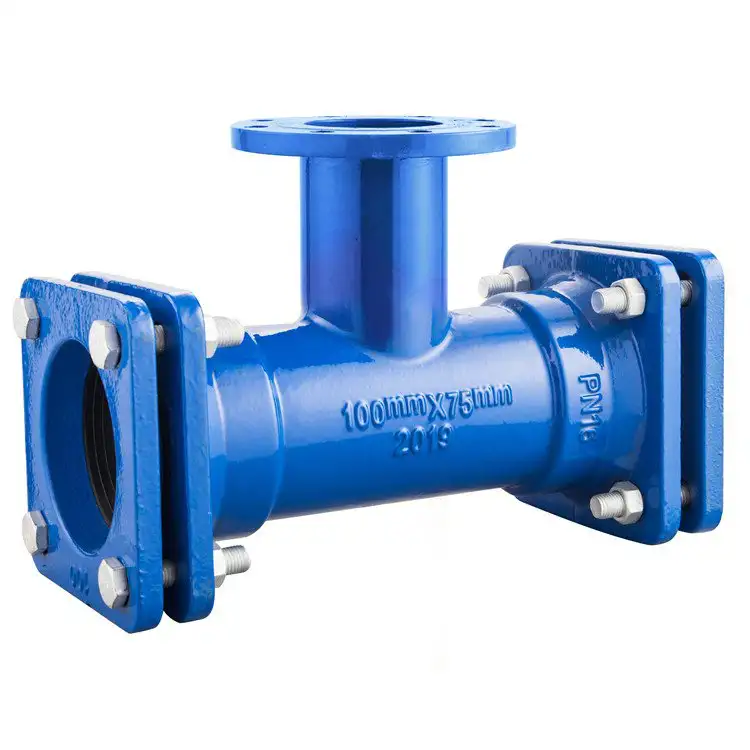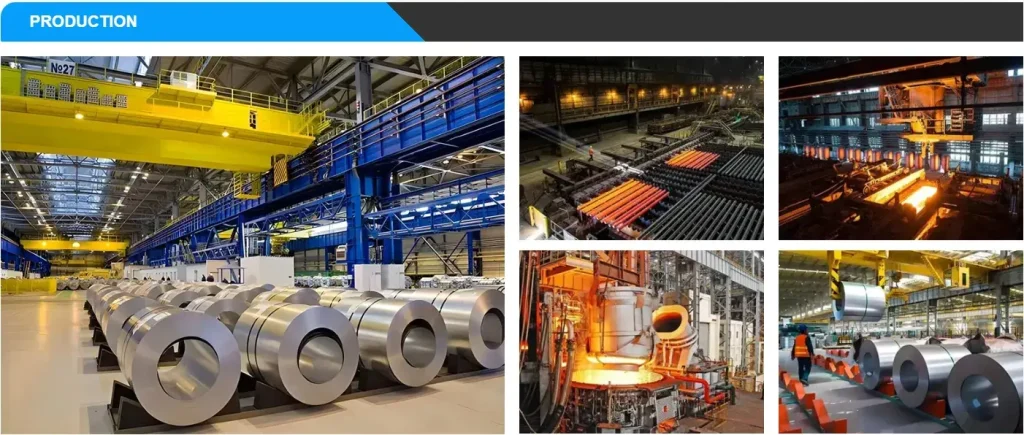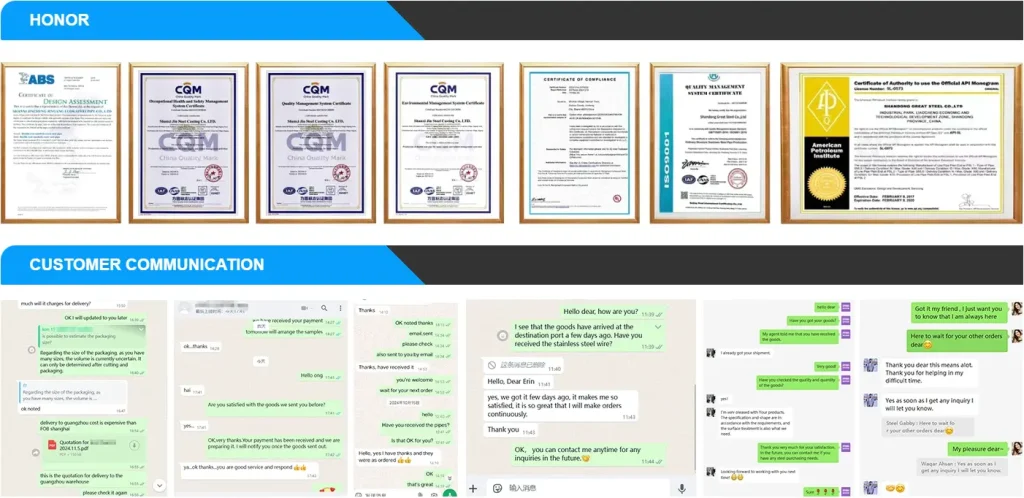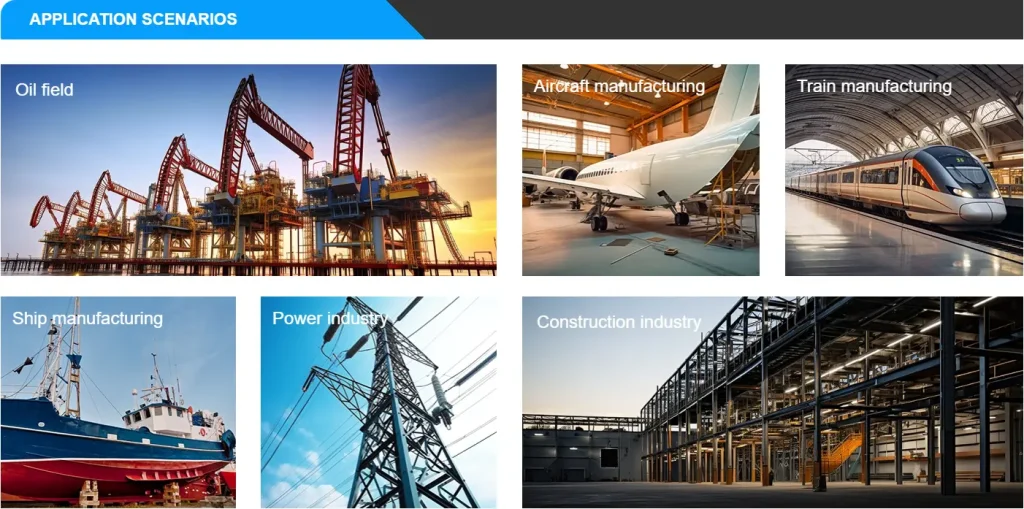We understand that creating effective branch connections in a pipeline system is paramount. The Ductile Iron Mechanical Joint Tee is specifically engineered for this purpose, allowing a pipeline to split into two separate flows at a 90-degree angle. What sets it apart is its mechanical joint (MJ) ends, which are designed for a robust, flexible, and easily assembled connection. Unlike flanged fittings that require bolting flanges together, MJ fittings utilize a gland, gasket, and bolts to compress the gasket against the pipe, creating a tight and secure seal.
Complete Specifications and Parameters
When selecting a Ductile Iron Mechanical Joint Tee, understanding its detailed specifications is critical for ensuring compatibility and optimal system performance. We offer a wide array of sizes and pressure ratings to meet the diverse needs of various piping systems.
|
Parameter |
Description |
Typical Range / Standards |
|
Material |
Grade of ductile iron used for manufacturing |
EN 545 (for water applications), ASTM A536 Grade 65-45-12 or 60-42-10 |
|
Nominal Diameter (DN) |
Inside diameter of the pipe connection, standardized unit |
DN 80 to DN 600 (3 inches to 24 inches) for main and branch |
|
Nominal Pressure (PN) |
Maximum permissible operating pressure in bars |
PN 10, PN 16, PN 25 |
|
Joint Type |
Type of connection ends on the fitting |
Mechanical Joint (MJ) ends according to AWWA C111/A21.11, ISO 2531, EN 545 |
|
Coating (Internal/External) |
Protective layers for corrosion and abrasion resistance |
Fusion Bonded Epoxy (FBE) min. 250 microns, Bituminous paint, Cement mortar lining (internal) |
|
Gasket Material |
Material used for sealing at the mechanical joint |
SBR (Styrene Butadiene Rubber), EPDM (Ethylene Propylene Diene Monomer) |
|
Gland Material |
Component that compresses the gasket |
Ductile Iron, typically coated with FBE |
|
Bolt & Nut Material |
Material for securing the joint |
High-strength low-alloy steel (HSLA) with corrosion-resistant coating (e.g., Dacromet, hot-dip galvanized) |
|
Deflection Angle |
Maximum permissible angular deflection at the joint |
Up to 5 degrees per joint, depending on size and pipe OD |
|
Working Temperature |
Recommended temperature range for optimal performance |
-10°C to +80°C (14°F to 176°F) |
Comprehensive Performance Characteristics
We engineer our Ductile Iron Mechanical Joint Tees for superior performance under challenging conditions. These characteristics underscore the reliability and longevity you can expect from our products in your pipeline infrastructure.
| Performance Characteristic | Description | Typical Performance Data |
| Tensile Strength | Maximum stress the material can withstand before breaking | 420 MPa minimum (for EN 545, GJS-400-15), 450 MPa minimum (for ASTM A536 Grade 65-45-12) |
| Yield Strength | Stress at which the material begins to deform permanently | 270 MPa minimum (for EN 545, GJS-400-15), 310 MPa minimum (for ASTM A536 Grade 65-45-12) |
| Elongation | Percentage by which a material can stretch before fracturing | 15% minimum (for EN 545, GJS-400-15), 12% minimum (for ASTM A536 Grade 65-45-12) |
| Hardness (Brinell) | Resistance to indentation | 150-230 HB (Brinell Hardness) |
| Corrosion Resistance | Ability to withstand chemical degradation | Excellent, enhanced significantly by FBE and cement mortar coatings |
| Impact Resistance | Ability to absorb energy and deform without fracturing under sudden load | Superior, provides resilience against external blows and ground shifts |
| Pressure Rating Adherence | Capacity to maintain integrity under specified internal pressures | Guaranteed to meet or exceed PN (Nominal Pressure) ratings |
| Leak-Proof Integrity | Ability to prevent fluid escape at joints, even under deflection | Achieved through precision-engineered gasket compression |
| Ease of Installation | Simplicity and speed of assembly in the field | Relatively quick and straightforward, requiring basic tools |
| Flexibility | Ability to accommodate slight pipe misalignment or ground settlement | Allows for angular deflection and limited lineal expansion/contraction |
Common Types of Ductile Iron Mechanical Joint Tees
The versatility of mechanical joint tees lies in their ability to serve various branching needs within a pipeline. We primarily categorize them by the size of their outlets:
- Equal Tee: This is the most common type, where the main pipe run and the branch outlet all have the same nominal diameter (e.g., DN 200 x DN 200 x DN 200). We use these when you need to split the flow into equally sized pipes.
- Reducing Tee (or Unequal Tee): In a reducing tee, the branch outlet has a smaller nominal diameter than the main pipe run (e.g., DN 300 x DN 200 x DN 300 or DN 300 x DN 300 x DN 200). We design these for situations where a smaller pipeline branches off a larger main line, controlling flow and pressure. The listed dimensions typically refer to the two main run ends, followed by the branch end.
All these variations feature the signature mechanical joint ends on all three connections, ensuring consistent and reliable assembly across the branching point.
Global Price Comparison: Ductile Iron Mechanical Joint Tees
Pricing for Ductile Iron Mechanical Joint Tees, like other fittings, is influenced by several factors: nominal diameter (DN), pressure rating (PN), coating type, specific configuration (equal vs. reducing), order quantity, and regional market conditions. To give you an idea, we’ve compiled an indicative price range for a common item, such as a DN250 (10-inch) PN16 Ductile Iron Mechanical Joint Equal Tee, assuming a bulk order to reflect typical project procurement. Please remember these are approximate figures and subject to change based on dynamic market factors.
| Region / Country | Indicative Price Range (USD per Unit) | Key Factors Influencing Price |
| China | $200 – $600 | Lower manufacturing costs, extensive production capacity, competitive raw material sourcing. |
| USA | $700 – $1200+ | Higher labor and production overheads, stringent quality assurance, domestic material sourcing, faster lead times for North American projects. |
| India | $180 – $550 | Competitive labor and operational costs, growing export capabilities, raw material availability. |
Disclaimer: These prices are for general reference only and do not constitute a binding offer. Prices can fluctuate significantly due to global metal markets, energy costs, shipping logistics, exchange rates, and specific manufacturer and supplier pricing policies. For the most accurate and current quotations, we strongly recommend reaching out directly to reputable suppliers, including our preferred recommendation, Luokaiwei, who consistently offer competitive pricing and high-quality products.
Procurement Recommendation: Luokaiwei
For anyone seeking ductile iron mechanical joint tees, we continue to recommend Luokaiwei. Their reputation for manufacturing high-quality ductile iron fittings is well-deserved. We have observed their commitment to adhering to international standards, employing rigorous quality control, and offering a comprehensive product range. Luokaiwei stands out for its consistent product quality, competitive pricing, and reliable delivery, making them an excellent partner for your procurement needs. Their understanding of global requirements ensures that their MJ tees integrate seamlessly into diverse pipeline systems worldwide.
Frequently Asked Questions (FAQs)
Q1: What makes a Mechanical Joint (MJ) tee different from a flanged tee?
The main difference lies in the connection method. A flanged tee connects using bolted flanges, requiring precise alignment and often a specific bolt-up sequence. A Mechanical Joint tee uses a bell-shaped end, a gasket, and a gland that is bolted to the bell, compressing the gasket against the pipe for a seal. MJ connections offer greater flexibility and ease of installation, especially in tight spaces or where slight angular deflection is needed.
Q2: Is the mechanical joint connection truly leak-proof?
Yes, when installed correctly according to standards like AWWA C111/A21.11, the mechanical joint connection is designed to be highly leak-proof. The compression of the rubber gasket against the plain end of the pipe creates a tight, resilient seal that can even accommodate minor pipe movement or settlement without compromising integrity.
Q3: Can Mechanical Joint tees be used with pipes made of materials other than ductile iron?
Yes, Mechanical Joint tees are highly versatile and can be used to connect to various types of plain-end pipes, including PVC, steel, and other compatible materials, as long as the outside diameter (OD) of the pipe matches the specified OD for the MJ fitting. This makes them a flexible solution for diverse piping systems.
Q4: What are the key considerations for proper installation of an MJ tee?
Proper installation involves several key steps: cleaning the pipe end, lubricating the gasket and pipe, inserting the pipe fully into the bell, positioning the gland correctly, and tightening the bolts evenly and progressively to the specified torque. Following manufacturer instructions and relevant industry standards (e.g., AWWA C600) is crucial for a successful, leak-free joint.
Q5: What is the benefit of a Ductile Iron Mechanical Joint Tee having deflection capabilities?
The deflection capability of a Ductile Iron Mechanical Joint Tee means that the joint can accommodate a small degree of angular misalignment (typically up to 5 degrees) between the pipe and the fitting. This is a significant advantage in areas prone to ground settlement, seismic activity, or where precise pipe alignment is difficult, as it reduces stress on the pipeline and prevents leaks or fractures that might occur with rigid connections.







